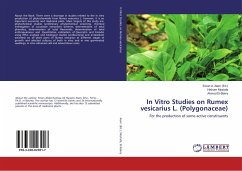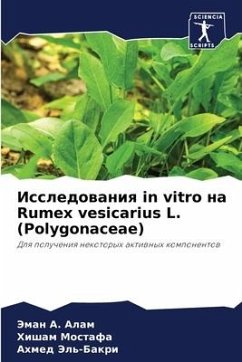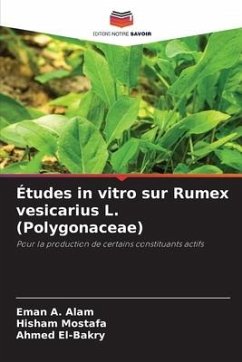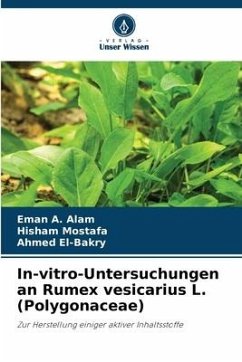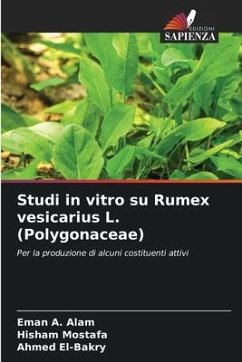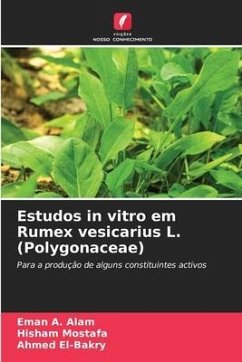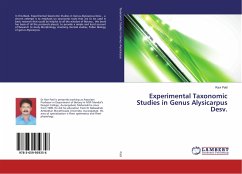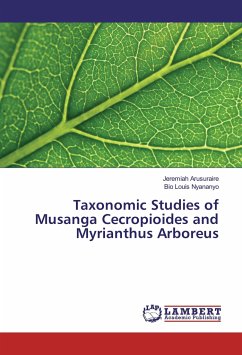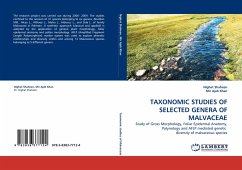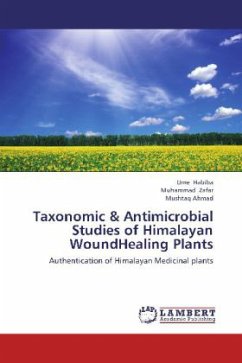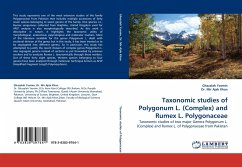
Taxonomic studies of Polygonum L. (Complex) and Rumex L. Polygonaceae
Taxonomic studies of two major Genera Polygonum L. (Complex) and Rumex L. of Polygonaceae from Pakistan
Versandkostenfrei!
Versandfertig in 6-10 Tagen
52,99 €
inkl. MwSt.

PAYBACK Punkte
26 °P sammeln!
This study represents one of the most extensive studies of the family Polygonaceae from Pakistan that includes multiple accessions of forty seven species belonging to seven genera of the family. One species i-e., Rumex senguineus collected from Brighton, United Kingdom used for AFLP analysis is also morphologically described. As this work is descriptive in nature, it highlights the taxonomic utility of morphological, anatomical, palynological and molecular markers. Most of the literature available for the genus Polygonum L. dealt with sectional division of the genus but in this study, it has b...
This study represents one of the most extensive studies of the family Polygonaceae from Pakistan that includes multiple accessions of forty seven species belonging to seven genera of the family. One species i-e., Rumex senguineus collected from Brighton, United Kingdom used for AFLP analysis is also morphologically described. As this work is descriptive in nature, it highlights the taxonomic utility of morphological, anatomical, palynological and molecular markers. Most of the literature available for the genus Polygonum L. dealt with sectional division of the genus but in this study, it has been treated as to be segregated into different genera. So in particular, this study has attempted to justify the recent division of complex genus Polygonum L. into segregate genera instead of sections as put forwarded by previous workers and to evaluate Rumex L. taxonomically through these markers. Out of these forty eight species, thirteen species belonging to four genera have been analyzedthrough molecular technique known as AFLP (Amplified Fragment Length Polymorphism).



